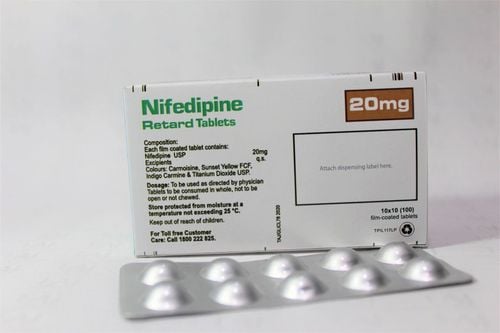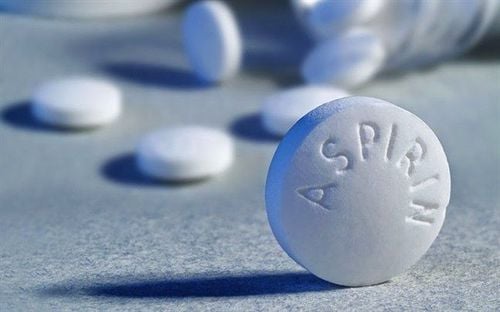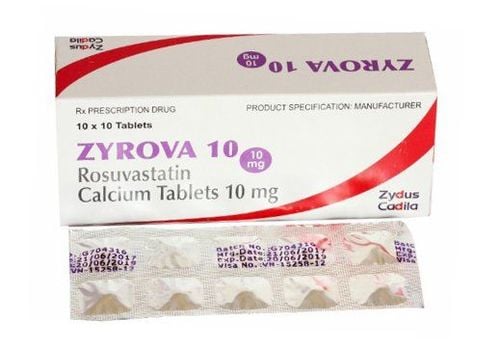This is an automatically translated article.
The article was professionally consulted by Specialist II, Senior Doctor Doan Du Dat - General Internal Medicine Doctor - Department of Medical Examination and Internal Medicine - Vinmec Ha Long International Hospital.Exercise is always encouraged to improve health. However, in some subjects, signs of angina appeared during and after exercise. So is angina during or after sports really worrisome and people with heart disease can exercise?
1. What is angina?
Angina is considered a symptom related largely to abnormalities of the coronary artery system supplying the heart. According to the literature, there are two different types of angina: stable angina and unstable angina:Stable angina is pain that occurs with exertion (such as heavy work, exercise, etc.) strength...), caused by lack of blood supply to the heart muscle. When the coronary system is chronically narrowed, the body works too hard, the demand for oxygen increases but the supply capacity is not enough, so angina occurs. Unstable angina is pain that comes on suddenly, even when the patient is at rest, without exertion. The pain is characterized by intense pain that lasts longer and does not go away on its own. The mechanism of unstable angina is that atherosclerotic plaques in the coronary system are unstable, detaching from the blood vessel wall and causing the appearance of blood clots, causing complete occlusion (in myocardial infarction). or incomplete coronary artery.

Đau thắt ngực là dấu hiệu bệnh lý không thể chủ quan
2. Some causes of chest pain when exercising
2.1. Angina pectoris due to coronary artery disease
Most cases of angina during exercise can be caused by coronary artery disease such as:Myocardial infarction : Chest pain during exercise due to this cause is similar in nature to unstable angina patient suddenly had chest pain on the left side, spreading to the left arm and accompanied by shortness of breath, rapid breathing, sweating, fatigue, panic... History of the patient has cardiovascular diseases such as hypertension, myocardial infarction and severe dyslipidemia. At that time, the patient needs to be treated promptly at medical facilities otherwise it will be life-threatening. Chronic myocardial ischemia: Angina pectoris due to myocardial ischemia is mainly caused by patients exercising too hard, leading to lack of blood supply, lack of oxygen to the heart itself. Patients with chest pain during exercise due to this cause, when resting, the pain will subside quickly and is usually not life-threatening.
2.2 Chest pain during exercise with causes unrelated to coronary artery disease
Intercostal neuralgia: For some reason, the intercostal nerves are damaged (compressed, injured or infected...) causing the patient to have angina pectoris. However, the pain is often persistent, localized pain in an area of the inflamed nerve and responds well to some common analgesics and anti-inflammatory drugs. This is the most benign cause, common to some people who exercise too hard, affecting the intercostal nerves. Trauma causing pneumothorax: In many cases, due to excessive exercise, injury, causing pneumothorax is also the cause of angina on the same side with the damaged pleura, pain not spread, but the patient had difficulty breathing due to limited breathing.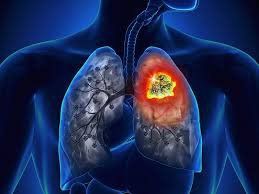
Đau tức ngực khi tập thể dục là dấu hiệu của bệnh ung thư phổi
3. Tests to diagnose the cause of chest pain during exercise
If suddenly appear angina during exercise or pain during exertion, accompanied by some of the following signs, the patient should quickly go to the hospital to check and detect abnormalities:Shortness of breath, shortness of breath; Feelings of nervousness, palpitations; Dizziness, lightheadedness; Faint. In general, people after the age of 45 who experience transient angina on exercise should see a cardiologist to evaluate for coronary artery disease
Some tests help diagnose the cause of chest pain when Exercise:
Electrocardiogram: This is a simple, easy-to-implement test that helps detect abnormalities of the coronary system such as myocardial ischemia, myocardial infarction or arrhythmia... Cardiac stress: Is a test for myocardial ischemia when a normal ECG is suspected, or normal Echocardiography: This is a non-invasive imaging tool that provides a number of images to help confirm Identify cardiovascular abnormalities such as congenital heart disease, stenosis of the heart valve or complications after myocardial infarction...

Điện tâm đồ giúp chẩn đoán nguyên nhân gây đau tức ngực khi tập thể dục
4. Can I exercise with heart disease?
According to studies, exercise can both overcome a sedentary lifestyle and be effective in preventing cardiovascular diseases such as cerebrovascular accident, myocardial infarction, coronary artery disease... However, If the patient has heart disease, can I exercise and how?When exercising, no matter how much or less, the exerciser has to exert himself, so there is still a rate of occurrence of certain cardiovascular events in the background of patients with pre-existing cardiovascular diseases. However, according to some studies, this rate is extremely low, only approximately one occurrence if the episode is 400,000-800.000 hours.
Therefore, even if you have cardiovascular disease such as angina, it is still relatively safe to exercise. In addition, if patients exercise regularly, the risk of cardiovascular complications is even lower.
If a person practices sports relatively regularly (about 5 times a week, about 30 minutes each time), the likelihood of major cardiovascular events during exercise will decrease by up to 50 times compared to lazy people active or infrequent exercisers. However, people with pre-existing cardiovascular disease should not be subjective. Instead, you should pay attention to unusual manifestations that appear before, during and after exercise such as feeling angina, shortness of breath, shortness of breath, dizziness, lightheadedness, or a strange feeling of loss and nervousness. often ... need to quickly see a cardiologist for timely examination, diagnosis and treatment as well as advice on training methods in the future.
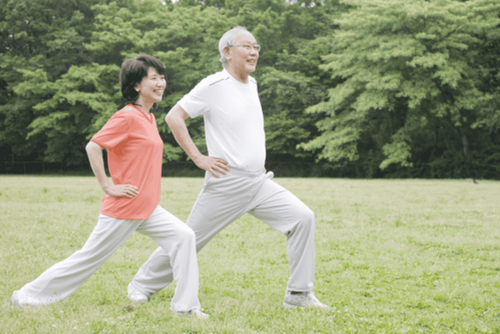
Bệnh nhân mắc bệnh tim nên tập thể dục điều độ, tránh tập quá sức
Please dial HOTLINE for more information or register for an appointment HERE. Download MyVinmec app to make appointments faster and to manage your bookings easily.




